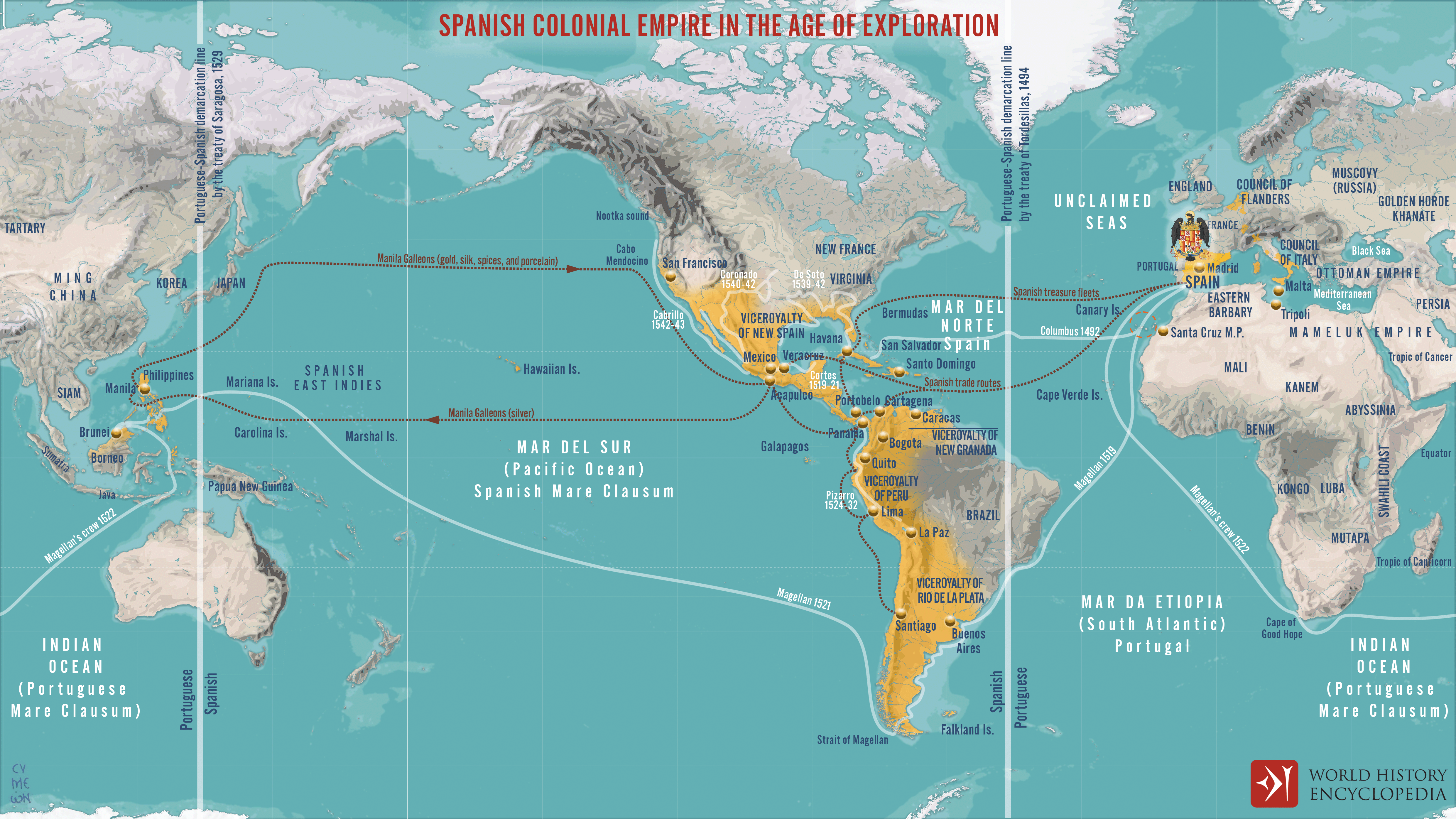
<aside> <img src="/icons/bookmark-outline_gray.svg" alt="/icons/bookmark-outline_gray.svg" width="40px" /> In this lesson, you will…
Big Question: What was the path that Colonial Latin America took to gain independence from Europe?
</aside>
Additional Reading: From the World History Encyclopedia

From 1500 to 1800, Latin America was colonized by Europe, especially Spain.
European nations used mercantilism to gain wealth from their American colonies.
One major impact of European colonization was the unequal social hierarchy in Latin America.
Peninsulares were royal governors sent by the king to enforce mercantilism and maintain order in the colony.
Spanish colonists living in America were called creoles; They had land and wealth but had no political power.
The next level of the social hierarchy was made up of a large mixed-race population
The offspring of Europeans and Native Americans were known as Mestizos; and the offspring of Europeans and Africans were known as Mulattos
Native American and African slaves made up the bottom of the social hierarchy
Native and African slaves were used as forced labor on plantations owned by Creoles
By the late 1700s, Latin Americans were inspired to gain independence by the American and French Revolutions. Many of the revolutions and revolutionaries were directly influenced by issues of taxation, representation, and equality.
The ideas of the Enlightenment inspired independence especially among the well-educated creole class.
During the Napoleonic Wars (1803-1815) Napoleon conquered Spain and removed the King from power.
During this time, the Spanish colonies began to govern themselves and quickly began moving towards declaring independence.